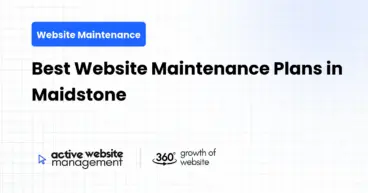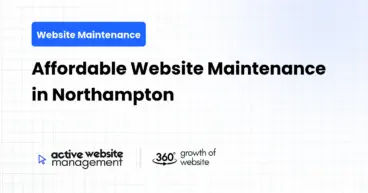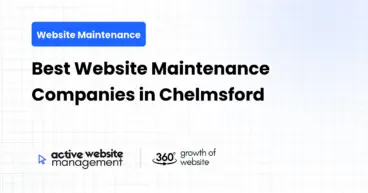January 9, 2025
15 min read
The Vital Pulse: Why Healthcare Website Security Matters
In the digital age, a healthcare website is more than just an online brochure; it’s a lifeline. It’s where patients find crucial information, book appointments, and sometimes even manage their health. But this very accessibility makes healthcare websites a prime target for cybercriminals. A breach doesn’t just mean downtime; it means potential harm to patient data, reputational damage, and legal ramifications. Think of it – sensitive patient information like names, addresses, medical histories, and insurance details – falling into the wrong hands. The implications are devastating, both for the individuals affected and for the healthcare provider’s credibility. That’s why securing your healthcare website isn’t just good practice; it’s a moral and legal imperative.
The Real-World Impact of Breaches
Let’s talk specifics. Imagine a scenario: a hospital website is hacked, and patient records are exposed. This isn’t some far-fetched Hollywood plot; it’s a stark reality that’s playing out all too often. In this scenario, patients face a heightened risk of identity theft, fraud, and emotional distress. The hospital, in turn, deals with hefty fines, legal battles, and a plummeting public trust. The cost isn’t just monetary; it’s the loss of faith in a system that is meant to protect vulnerable individuals. These breaches erode trust and can discourage patients from utilizing online healthcare services, ultimately impacting their health outcomes. Healthcare website security, therefore, is fundamental to maintaining both patient well-being and organizational integrity.
The Delicate Dance of Trust
A secure healthcare website builds trust. Patients are more likely to engage with a provider they feel confident in, and that confidence starts with a safe and reliable online platform. A well-maintained and secure website sends a powerful message: “We care about your well-being, both online and offline.” On the flip side, if your website is sluggish, prone to errors, or, worse, has been compromised, patients may view that as an indication of substandard care across the board. This erosion of trust will directly affect patient acquisition, engagement, and loyalty. A maintenance plan isn’t just about fixing bugs; it’s about building and safeguarding patient relationships.
Anatomy of a Healthcare Website Security Risk: Understanding the Threats
Understanding the “how” is just as important as the “why.” What kinds of threats are healthcare websites facing? It’s crucial to recognize the diverse ways in which your site can be compromised to properly protect it. These are some of the common enemies you need to be aware of:
Don’t Just Maintain Your Website—
Grow It using Active Website Management! Don't Wait for Growth—Accelerate It with Active Website Management
Malware: The Silent Invaders
Malware is a blanket term for various malicious software designed to harm your website or computer systems. This can range from viruses that corrupt data to trojans that provide access to sensitive systems. Imagine a sneaky virus that slowly corrupts medical records, leading to wrong diagnoses or treatments, or imagine a Trojan that steals sensitive login credentials, providing access to the entire database. For a healthcare website, malware can be devastating, leading to everything from website downtime to the theft of patient data. Regular scanning and patching of security vulnerabilities are crucial to keep these threats at bay.
SQL Injection: The Data Thief
SQL injection is a type of cyberattack where malicious code is injected into your website’s database, allowing attackers to manipulate or steal data. This is like someone quietly slipping a key into your data vault and walking out with everything they can carry. Healthcare databases, with their wealth of patient information, are incredibly valuable targets for SQL injection attacks. These attacks can easily extract personally identifiable information (PII) or even alter the records entirely. Protection against these types of attacks requires rigorous input validation and secure coding practices.
Cross-Site Scripting (XSS): The Impersonator
XSS attacks happen when attackers inject malicious scripts into your website, which are then executed in the browsers of unsuspecting visitors. This can give the attackers control of user accounts, redirect them to malicious websites, or steal their sensitive information. Imagine someone changing the website content to spread misinformation or hijack login credentials. XSS attacks are particularly insidious because they exploit vulnerabilities in your website’s code and can spread quickly. Strong security measures are essential to prevent this from happening.
DDoS Attacks: The Overwhelm
A Distributed Denial of Service (DDoS) attack is a coordinated attack from multiple sources that floods your website with traffic, making it unavailable to legitimate users. This is like a crowd swarming the front door of your business, preventing anyone from getting in. For a healthcare website, a DDoS attack can be catastrophic. Patients might be unable to access essential information, schedule appointments, or refill prescriptions. The website simply becomes unavailable when patients need it the most. A good defense includes load balancing and working with a hosting provider that has robust DDoS protection.
Outdated Software: The Open Door
Outdated software and plugins on your website are like leaving the doors and windows of your clinic wide open. Cybercriminals actively search for websites using vulnerable versions of software. Unpatched software is an easy target for attackers, offering them well-known security holes that they can exploit. Regular software and plugin updates are essential to patch these holes and reduce vulnerability to these attacks. This isn’t just an “optional” task – it’s a necessary step in ensuring the security of your website.
The Power of a Maintenance Plan: Your Shield Against Threats
A website maintenance plan is not just an expense; it’s an investment in the security and success of your healthcare website. It is the crucial shield that keeps your online presence protected from both known and unknown threats. Think of it as a routine health checkup for your website. What are the key elements of a robust maintenance plan?
Regular Software and Plugin Updates: Essential First Steps
As we’ve seen, outdated software is a major vulnerability. A maintenance plan ensures that your website’s core software, as well as all plugins and themes, are regularly updated to the latest versions. These updates often include crucial security patches that fix known vulnerabilities. Ignoring these updates is like ignoring the flashing warning lights on your dashboard—a recipe for disaster. Regular updates are critical for maintaining the integrity and security of your site.
Routine Security Scans: Keeping Watch
Security scans act as a constant watchman, regularly checking your website for any signs of malware or vulnerabilities. These scans can detect threats you might not see and help you deal with them before they cause serious damage. With security scans running on a regular schedule, you can rest easy knowing there’s a digital guard looking out for your data around the clock.
Regular Backups: A Safety Net
Regular backups are your safety net in case of a data breach, accidental deletion, or system failure. In the event of a catastrophic event, you can quickly restore your website to a functioning state without losing critical data. These backups should be stored securely, preferably on a separate server, to ensure that they’re not affected by the same events that compromised your site.
Don't Wait for Growth—Accelerate It with
Active Website Management Don't Wait for Growth—Accelerate It with Active Website Management
Performance Optimization: Keeping It Fast and Reliable
A well-maintained website is not only secure but also fast and efficient. Performance optimization can involve optimizing code, compressing images, and using caching techniques. A fast loading website ensures a better user experience, and that will positively affect your patient interactions. A sluggish, unreliable website does not instill trust in patients, so performance optimization must be a key focus.
Content Updates and Management: Ensuring Relevance and Accuracy
Your website’s content is dynamic, so it must be regularly updated to stay relevant, accurate, and in compliance. A maintenance plan includes content updates, such as updating service offerings, team member profiles, and health information. Keeping the website fresh and updated ensures that the content resonates with visitors and reflects any changes in your healthcare practice.
24/7 Monitoring: Constant Vigilance
Cyberattacks don’t happen only during working hours, so you need 24/7 monitoring of your website. Constant monitoring allows for early detection of suspicious activities and prompt response before damages can escalate. This proactive approach offers an added layer of protection that ensures that your website is continuously protected against potential breaches.
The SEO Benefits of a Well-Maintained Healthcare Website: Ranking High
Beyond security, a maintenance plan also significantly boosts your search engine optimization (SEO) efforts. Here’s how:
Site Speed Matters for SEO
Google favors fast-loading websites. A well-maintained website, with optimized performance, loads quicker, which improves your ranking in search engine results pages (SERPs). Search engines understand that faster websites provide better user experience. When Google sees that your website is faster, it will reward you with better rankings. This leads to more organic traffic, which in turn brings in more patients.
User Experience (UX) Signals SEO Rankings
A well-maintained website provides a positive user experience. This includes intuitive navigation, clear content, and mobile responsiveness. When users have a smooth and engaging experience on your website, they’re more likely to spend more time there, explore more pages, and return later. These positive user behavior signals tell Google that your site is useful and relevant, which enhances your SEO rankings.
Fresh Content Attracts Search Engines
Search engines prefer websites that have fresh and regularly updated content. A maintenance plan that includes content updates keeps your website current and relevant, which is an essential factor in SEO. New content provides search engines with something to crawl and index. This leads to better rankings for relevant search queries.
Reduced Downtime Improves Crawlability
Downtime hurts your SEO. Search engines can’t crawl your website if it’s constantly down. Routine maintenance helps reduce downtime, ensuring that search engines can crawl and index your site efficiently. Keeping your website operational is paramount to search engines, and a well-maintained website maximizes your SEO performance.
Implementing a Healthcare Website Maintenance Plan: Step-by-Step Guide
Implementing a robust maintenance plan doesn’t need to be overwhelming. Here’s a step-by-step guide:
Audit Your Current Website
Start with a thorough audit of your current website. Identify existing security vulnerabilities, outdated software, and performance issues. This gives you a baseline of what you need to address as you move forward. Your website needs a full physical, just like a patient coming into the clinic.
Define Your Goals and Scope
Clearly define your maintenance goals. What do you want to achieve? Is it just securing your site? Is it improving site speed? Is it boosting SEO rankings? Define your budget, and the level of maintenance that your specific website needs.
Choose a Maintenance Provider or Build a Team
You can either hire an agency specializing in website maintenance or assemble a team to handle it internally. If you go the agency route, be certain to do some thorough research to make sure that the provider you choose is experienced in dealing with the unique requirements of a healthcare website.
Set up a Regular Schedule
Establish a regular schedule for updates, backups, security scans, content review, and any other key maintenance tasks. Schedule these tasks as if they are regular appointments, and make sure that they are carried out without fail.
Implement Monitoring Tools
Deploy security monitoring tools that can detect potential attacks and anomalies. This can include intrusion detection systems, log analysis, and vulnerability scanners.
Document the Process
Document the entire maintenance process. From the procedures that are used, the schedules, to the results that are achieved. Keep a record of all updates, changes, and security scans. This makes it easy to track progress and allows others on the team to understand the processes that are used.
Continuously Refine and Improve
Regularly evaluate the maintenance plan, identify areas that need improvements, and refine it to adapt to emerging threats. Website maintenance is an ongoing process. As your site grows and changes, the maintenance plan needs to grow and change with it.
Active Website Management: A Partner in Your Website Security Journey
At Active Website Management, we understand the crucial role that a secure and well-maintained website plays in the healthcare industry. We offer comprehensive maintenance plans designed to safeguard your online presence and improve your SEO performance. Our experienced team is skilled in dealing with the specific challenges that healthcare websites face, and can provide tailored solutions that meet your exact needs. We provide:
- 24/7 Website Monitoring: Continuous surveillance to detect and respond to threats immediately.
- Regular Security Scans: Proactive security measures to identify and patch vulnerabilities.
- Software and Plugin Updates: Keeping your website updated for maximum security and performance.
- Performance Optimization: Enhancing your website’s speed and user experience.
- Regular Backups: Ensuring that your data is safe and recoverable.
- SEO Optimizations: Improving your search engine rankings, bringing in more patients.
Our commitment is to provide a reliable, hassle-free experience so that you can focus on what matters most—patient care. We offer a customized, hands-on approach, working directly with you to make sure that your website is not just secure but also a powerful asset for your organization. Let us manage the technology behind the scenes, so you can focus on running your healthcare business.
Beyond the Basics: Advanced Security Practices for Healthcare Websites
While basic website maintenance is essential, consider adopting some advanced security practices for even better protection:
Two-Factor Authentication (2FA): An Extra Layer of Security
Implement 2FA for all user accounts, particularly those with administrative access. This adds a vital layer of security, as users have to verify their login with two factors. This reduces the risk of unauthorized access, even if login credentials are stolen.
Web Application Firewalls (WAFs): Shielding Against Attacks
A WAF acts as a security barrier that filters malicious traffic from your website. These intelligent firewalls protect against a variety of common attacks, like SQL injections and XSS attacks. It serves as a security guard that can discern good traffic from bad traffic, and block the bad traffic from entering.
Data Encryption: Protecting Sensitive Information
Use data encryption to protect sensitive patient data, both in transit and at rest. Encryption is the process of encoding data so that only authorized individuals can access it. This ensures that even if data is stolen, it is unreadable without the appropriate decryption key.
Regular Security Audits: Testing Your Defenses
Conduct regular security audits from third-party professionals to identify vulnerabilities and strengthen your defenses. These independent experts can test your systems and find potential problems that you might have overlooked.
Employee Security Training: Strengthening the Human Firewall
Train your staff on best security practices. This includes how to identify phishing attempts, create strong passwords, and handle patient data with care. The weakest link in any system is often the people who use it, so training is important to make sure that everyone is aware of the different risks, and knows how to manage them.
SSL Certificates: Securing Communications
Use an SSL certificate to secure communication between your website and your visitors. SSL encryption helps protect sensitive data from eavesdropping by a third party. This is especially important on pages where users input personal data, like contact forms, and payment pages.
The ROI of a Maintenance Plan: More Than Just Security
Investing in a robust maintenance plan pays dividends in many ways. Beyond security and SEO benefits, a well-maintained website:
Reduces Downtime: Saves Money
Minimizing website downtime can save your organization from potential revenue loss. Every moment of downtime means that patients can’t book appointments or access your information, which translates to lost income.
Improves Reputation: Builds Trust
A secure, reliable website enhances your reputation, building trust with both patients and partners. Patients are more likely to choose a healthcare provider with a website that they find professional and trustworthy.
Boosts Patient Engagement: Enhances Communication
A well-maintained website offers improved patient engagement, and is an excellent platform for patient communication. When patients trust your website, they’re more likely to use it, allowing you to communicate with them about important updates, health information, and changes in practice hours.
Protects Legal Standing: Avoids Fines
By keeping patient data secure, you will be protected from legal penalties and fines for noncompliance. Data breaches can lead to substantial costs that affect the overall viability of any business.
Supports Scalability: Adapting to Growth
A well-maintained website provides the foundation for scalability, adapting to the growth of your organization. Your website must be able to keep up with your needs, whether you are increasing the number of patients, or the number of physicians on staff.
Conclusion: Secure Your Digital Presence Today
Securing a healthcare website with a robust maintenance plan is not optional; it’s essential. In today’s interconnected digital world, a healthcare website is a valuable asset that must be protected. With threats continuously evolving, a proactive approach to security is not just a good practice—it is an absolute necessity. This ensures that your website remains secure, efficient, and able to meet the needs of your patients, and that it continues to grow along with your healthcare organization. The time to invest in your website’s security is now, so that you can reap the benefits for many years to come.







